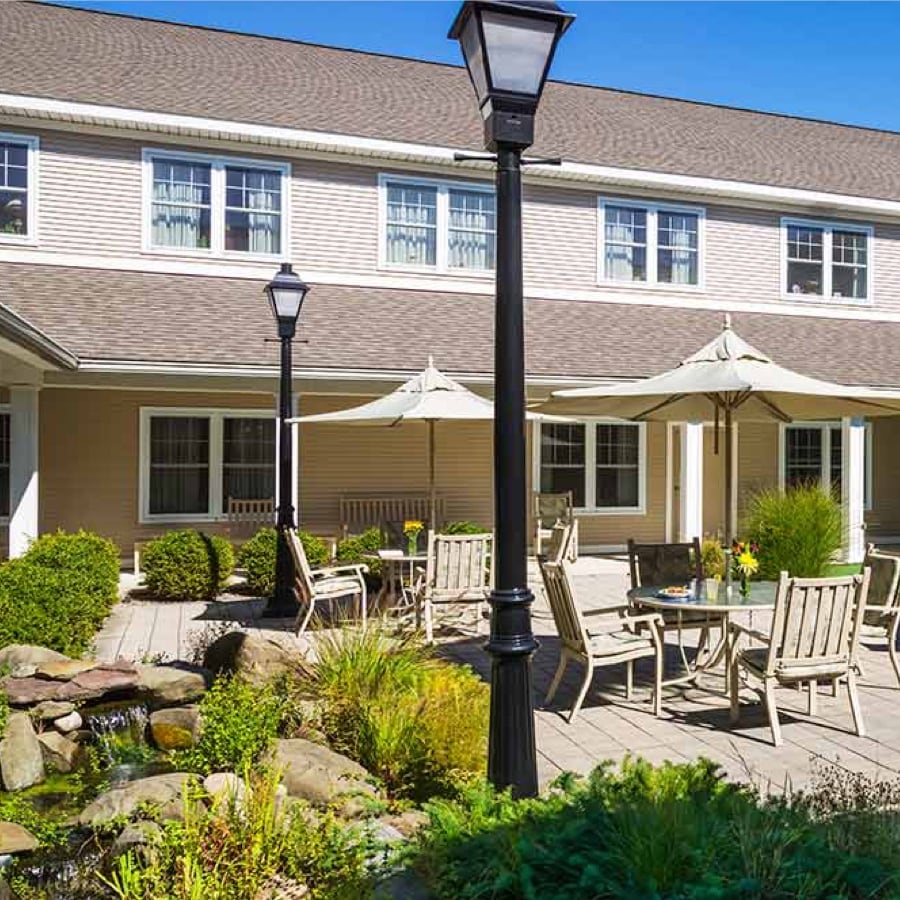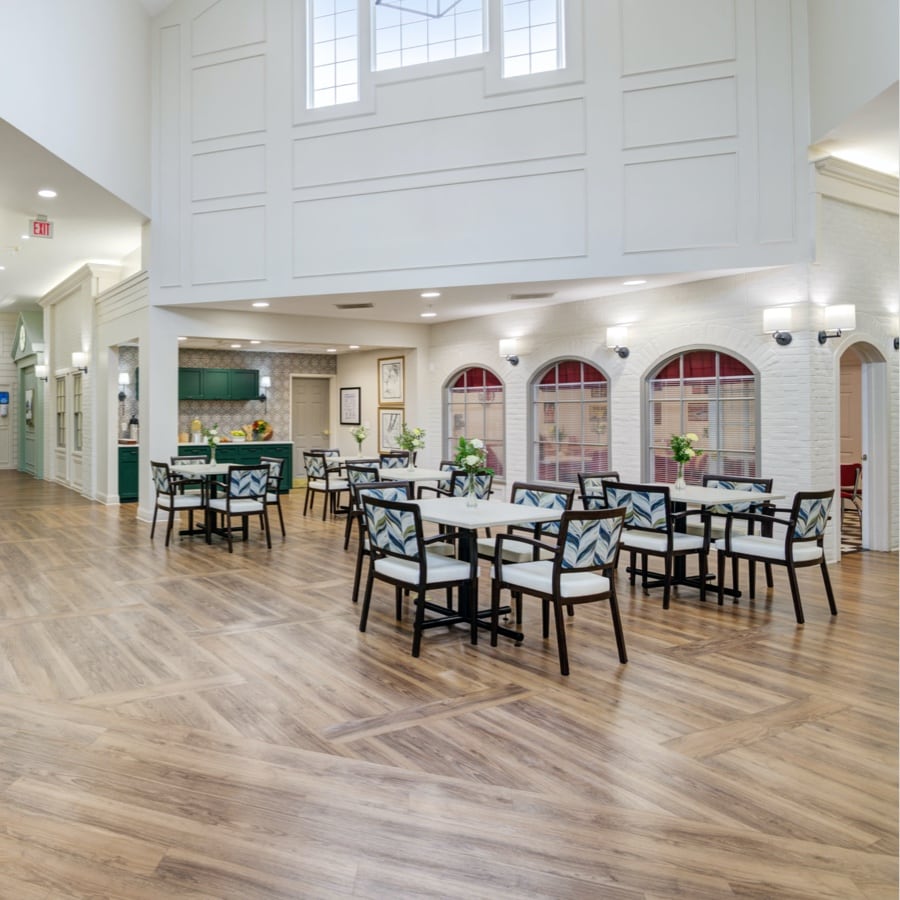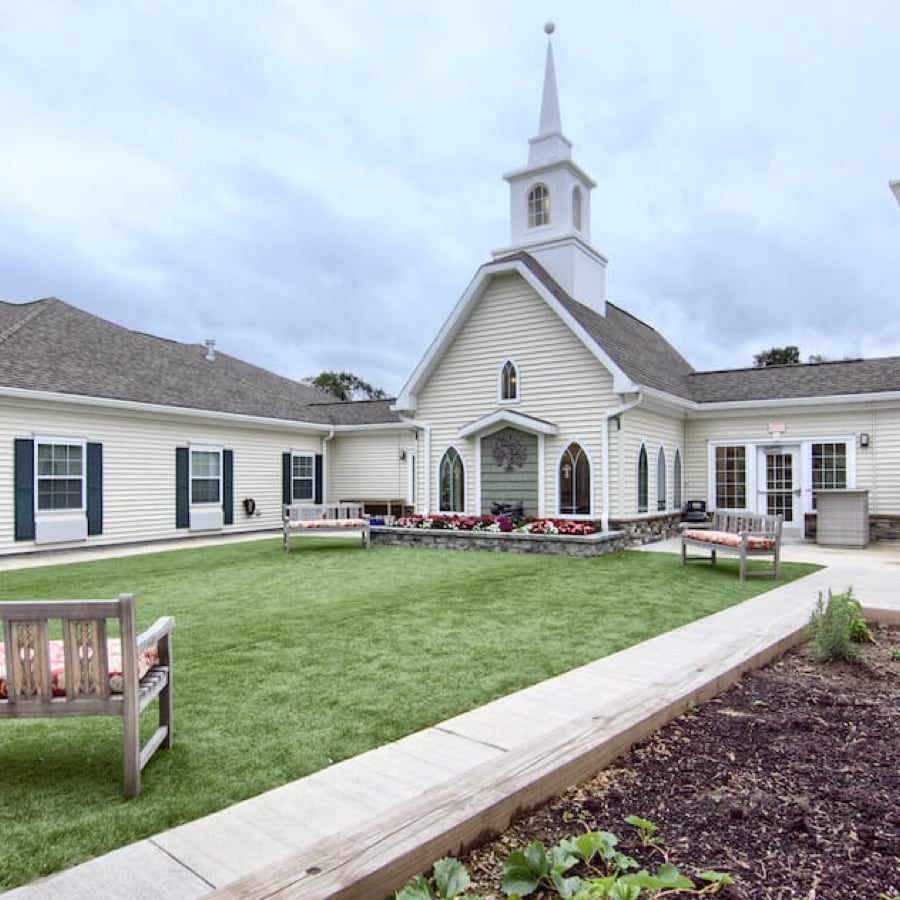Undoubtedly, deciding to put a loved one in assisted living can be one of the hardest decisions of your life. But, when caring for a loved one at home becomes too dangerous or impossible to manage, assisted living becomes a necessity.
Even if you are confident you made the right choice for your loved one, it’s not uncommon to still feel pain, guilt and sadness associated with this major change. As a dementia caregiver, you know how much your loved one relied on you and your assistance. However, it’s important for you to move past these feelings and find peace in your decision.
3 Ways to Cope With Caregiver Guilt
If you let it, caregiver guilt can cause anxiety, depression and stress. It’s important for you to cope with guilt head-on to avoid any long-term issues and to be truly present as your loved one adjusts to life in assisted living.
Use these suggestions to help you better cope with any caregiver guilt or sadness you are feeling:
1. Make the time you spend together meaningful.
One of the biggest reasons caregivers feel guilt is because they don’t feel as though they can spend enough time with their loved one. Instead of focusing on the time you spend away from your loved one, focus your attention on making the time you do spend with them as quality as possible. Also, help them engage in activities that encourage socialization with others within the community. Knowing that your loved one is making friends and enjoying themselves can help ease the guilt you feel for being apart from them.
2. Remember your loved one is getting better care and support.
As a sole caregiver, you were probably spread thin and constantly stressed out. In an assisted living community, your loved one has the opportunity to engage in supervised activities designed to challenge them, help them better deal with dementia, and gain confidence in the skills they still have. This is a level of support you can’t offer on your own.
3. Don’t compare yourself to anyone else around you.
Everyone is dealing with a completely different situation and what works for someone else might not work for you and your loved one. Your loved one may be dealing with dementia or Alzheimer’s and need a higher level of care than you can possibly provide on your own. Or, your own health might be suffering as a result of full-time caregiving. While it’s challenging, the best thing you can do is focus on your unique situation and your unique needs.
Ultimately, the best thing you can do is to feel completely confident in the assisted living community you choose. If you are happy with the choice you made and are comfortable with the level of care they’ll be receiving, over time your caregiver guilt will fade – especially if you start to see your loved one excel or experience noticeable improvements. Stay strong and know that you are doing what is best for your loved one’s needs.
Find Alzheimer’s and Dementia Support at Peregrine Senior Living
If you find yourself at a crossroads, it’s time to start considering assisted living. Peregrine Senior Living is a unique community that engages residents and helps them continue their search for purpose, validation and fulfillment in life, despite an Alzheimer’s or dementia diagnosis. We encourage you to tour our memory care communities and decide if it’s the right next step for your loved one.











